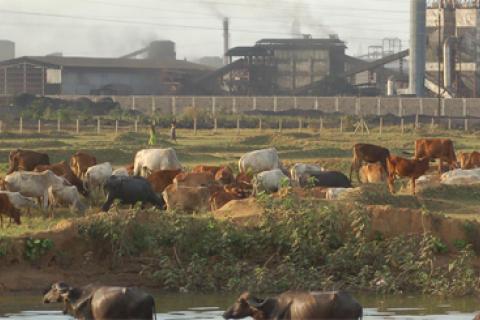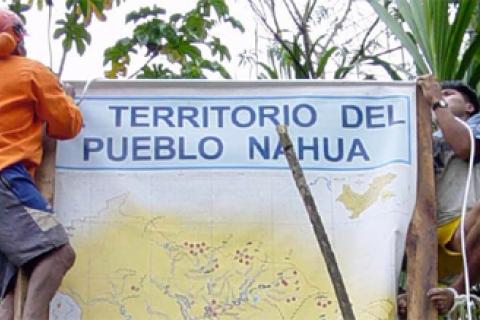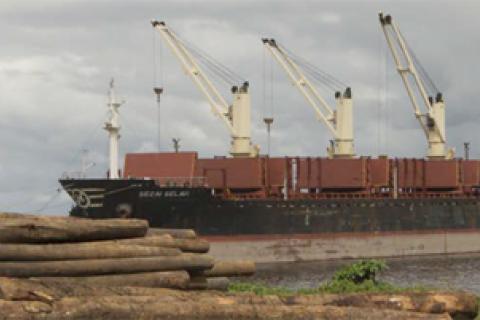It was recently reported that the pulp and paper consortium Montes del Plata, a joint venture between Swedish-Finnish forestry giant Stora Enso and the Chilean corporation Arauco, has sold 45,000 hectares of land in the departments of Tacuarembó and Rivera, most of it covered by tree plantations, to the U.S. investment management firm GMO. (1)
Bulletin articles
India Climate Justice, a collective of social movements, trade unions, other organizations and individuals, has issued on last June 25 a statement stressing that the devastating loss of life, livelihoods, and homes in Uttarakhand and beyond, caused by extreme unseasonal rains in North India, is a tragedy that indicates a global warming induced climate change phenomenon.
Members of the National Peasants Union, known as UNAC, in Mozambique, and representatives of international nongovernmental organizations following the Tokyo International Conference on African Development have called on the governments of Japan, Brazil and Mozambique to halt the ProSavana program.
More than 100 organisations (including a number of coalitions representing many more groups) signed up to an Open Letter to EU decision makers on EU biofuels policy - and from every continent.
After the Ecuadorian president announced plans to carry out an evaluation on securing financing for the Yasuní-ITT project, reflecting a clear interest in oil drilling, the ‘Guardians of Yasuní’ initiative organized a vigil in defence of the national park and its forests. The organizers stated: “Sumak Kawsay (Living Well) is possible without oil, as has been demonstrated by the great diversity of life in Yasuní alongside the peoples who have coexisted with it for thousands of years. No amount of money can make it worth destroying this piece of paradise in Ecuador.
The new “sustainable development” is called the “green economy”, which will function on the basis of “green growth”. Particularly since Rio+20, the UN and national governments have attempted to demonstrate to the world a renewed commitment to a policy of responsibility towards the environment and the future of the planet. Calling this policy “green”, a colour associated with nature, is a smart move. But will the “greenness” of this policy also extend to concern for diversity? And in the future, will the “green economy” also be a “biodiverse economy”?
The Peruvian Amazon, which covers more than 61% of the country’s territory, is the fourth largest area of tropical rainforest in the world. Thanks to this extensive forest cover, Peru also has an extremely high degree of biodiversity; for instance, it ranks in fifth place worldwide for plant diversity, with close to 25,000 recorded species.
Logging permits designed to promote small businesses and meet local needs are being allocated in their hundreds to industrial logging companies in Cameroon, the Democratic Republic of Congo (DRC), Ghana and Liberia.
Some 20,000 people participated in the 4th National March in Defence of the Land, Water and Life held on May 10, 2013 in Montevideo, Uruguay. The march was organized and promoted by some 40 organizations from around the country, in response to the growing concentration of ownership and foreign control of land in Uruguay, where 42% of arable land is currently under foreign ownership.
From May 26-June 1, the International Tree Biotechnology 2013 Conference took place in Asheville, NC. This conference is a gathering of genetically engineered tree proponents and scientists. The Campaign to STOP GE Trees together with Join Earth First! and Global Justice Ecology Project had called to Resist the Tree Biotechnology 2013 Conference and carried out a week of resistance to genetically engineered trees.




